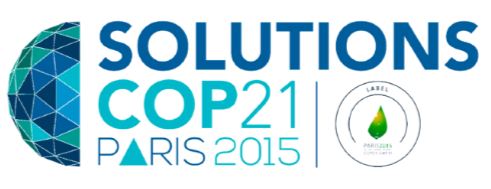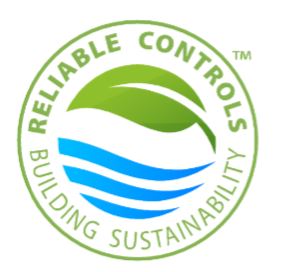|
July 2016
Article
AutomatedBuildings.com
|
[an error occurred while processing this directive]
(Click
Message to Learn More)
|
New
Investments in Green Technologies
The Global Campaign Against Climate Change
|
Karina Wright
MarCom Writer
Reliable Controls
|
The
2015 United Nations Climate Change Conference held in Paris, France in
December 2015 was the 21st yearly session of the Conference of the
Parties (COP21) of the United Nations Framework Convention on Climate
Change (UNFCCC). The conference negotiated the Paris Agreement, a
global agreement to reduce climate change, setting a goal limiting
global warming to less than 2 degrees Celsius compared to
pre-industrial levels. The agreement will become legally binding if
joined by at least 55 countries, which together represent at least 55
percent of global greenhouse emissions. The participating 195 countries
agreed to the final global pact by consensus. France’s Foreign
Minister, Laurent Fabius, said this “ambitious and balanced” plan was
an “historic turning point” in the goal of reducing global warming.
 In April 2016, it was reported that
this international climate deal could come into force two years early,
according to the top United Nations climate official. The historic
Paris Agreement was originally meant to be activated in 2020, but
Christiana Figueres, Executive Secretary of the UNFCCC said, “I think
we will have a Paris Agreement in effect in 2018.” She added, “The
quality of investment today equals the quality of energy
tomorrow—equals the quality of life forever... it is not correct to
think we are going to deal with climate change tomorrow. We have to
deal with it today.”
In April 2016, it was reported that
this international climate deal could come into force two years early,
according to the top United Nations climate official. The historic
Paris Agreement was originally meant to be activated in 2020, but
Christiana Figueres, Executive Secretary of the UNFCCC said, “I think
we will have a Paris Agreement in effect in 2018.” She added, “The
quality of investment today equals the quality of energy
tomorrow—equals the quality of life forever... it is not correct to
think we are going to deal with climate change tomorrow. We have to
deal with it today.”
At a high-level signing ceremony on April 22, 2016, on Earth Day, more
than 170 countries signed up to this landmark climate change deal,
where 60 heads of state were in attendance. “We are breaking records in
this Chamber—and that is good news,” UN Secretary-General Ban Ki-moon
said. “We are in a race against time.”
Following this historic climate deal, C40 Cities Climate Leadership
Group (C40) launched new research highlighting the wide range of
economic and social benefits arising from city climate action. C40 is a
global network of large cities taking action to address climate change
by developing and implementing policies and programs that generate
measurable reductions in both greenhouse gas emissions and climate
risks. C40 supports cities to collaborate effectively, share knowledge,
and drive meaningful, measurable, and sustainable action on climate
change.
The lack of access to finance was one of the biggest barriers to cities
delivering climate action; however, several actions have been taken in
this regard.
The UN Green Climate Fund directed at low carbon, resilient development
received a boost at COP21, with advanced economies formally agreeing to
jointly mobilize $100 billion per year by 2020 to address the needs of
developing countries.
C40 is doing its part to mobilize financing through the creation of the
C40 Cities Finance Facility (CFF) in partnership with Germany and
Inter-American Development Bank (IADB), which will provide the skills,
technical assistance, and connections to funding opportunities needed
to unlock up to $1 billion worth of sustainable infrastructure in
cities across low and middle income countries by 2020.
The World Bank Group has adopted a new Climate Change Action Plan,
which intends to help countries meet their Paris COP21 pledges and
address increasing climate impacts. As part of this effort, the bank
plans to provide $25 billion in private financing for clean energy by
the end of the decade. World Bank Group president Jim Yong Kim said,
“following the Paris climate agreement, we must now take bold action to
protect our planet for future generations. We are moving urgently to
help countries make major transitions to increase sources of renewable
energy, decrease high-carbon energy sources, develop green transport
systems, and build sustainable, liveable cities for growing urban
populations.”
International Finance Corporation (IFC), a member of the World Bank
Group, is planning to increase its climate investments from the current
$2.2 billion a year to $3.5 billion a year in grid-connected renewable
energy, green buildings, industrial/commercial energy efficiency, and
climate-smart urban infrastructure. In addition to adding $13 billion a
year in private sector financing by 2020, IFC intends to continue to
use financial instruments and advice to grow its business in
distributed renewable energy, off-grid energy access, and climate-smart
agriculture.
Corporate leaders, government ministers, and international development
banks leading the transition to a green economy highlighted the
multi-trillion dollar business opportunities at the Sustainable
Innovation Forum, the largest business-focused event held during the
COP21 Paris Climate Summit. The two-day event aimed to accelerate the
development of a low-carbon, green economy by showcasing innovative
technology solutions, sharing pioneering thinking, and building
cross-sector partnerships.
United Nations Environment Program Executive Director Achim Steiner
said, “as momentum for a sustainable future grows, we are already
seeing the enormous opportunities for business of an inclusive green
economy. We need look no further than the power sector, where last year
half of all new infrastructure investments—some $270 billion—were in
renewables. The market for low-carbon technologies and innovations is
not some future concept. It is thriving today, and offers huge
potential for those who would capitalize on it.”
Earlier this year, members of the Massachusetts Institute of Technology
(MIT) community and researchers from the US Department of Energy (DOE)
convened for Energy Efficiency and Renewable Energy Day, an event
dedicated to the future of low-carbon energy. DOE leaders and MIT
faculty discussed current research to accelerate scientific
breakthroughs in clean energy fields. In a panel on buildings, energy
efficiency, and advanced manufacturing, Mark Johnson, DOE’s Director of
Advanced Manufacturing, spoke about the importance of having an
innovation ecosystem where research and development and manufacturing
are connected. “We need to stop the cycle”, he said, “of clean energy
products [being] invented here, but made elsewhere.” Reliable Controls
excels in the global market in this regard by keeping all research and
development, manufacturing, assembly, sales, and service at the LEEDŽ
Platinum Headquarters in Victoria, BC, Canada, effectively leveraging
the company’s ability to sustain an in-house ecosystem while retaining
the company’s position as a global player in the market.
[an error occurred while processing this directive]
The next four years are critical; global emissions must peak by 2020
and the agreement may not kick in until that year. Cities have a major
role to play, consuming more than two thirds of global energy and on
track to become home to more than two thirds of the global population.
The good news is that global mayors within the C40 network and beyond
are already providing the leadership, commitment, and concrete
solutions to make the difference.
 The building industry is one of the largest users of energy, with
buildings accounting for almost one-third of global greenhouse gas
emissions; therefore, efforts to reduce energy can pay high dividends
in lowering the global carbon footprint, and controllers and sensors
that Reliable Controls manufactures and distributes are key in this
effort. Not only does the company provide effective CO2 measuring
tools, but it also provides the software to measure all data and make
essential changes where necessary, allowing building operators to make
noticeable changes to save energy and costs.
The building industry is one of the largest users of energy, with
buildings accounting for almost one-third of global greenhouse gas
emissions; therefore, efforts to reduce energy can pay high dividends
in lowering the global carbon footprint, and controllers and sensors
that Reliable Controls manufactures and distributes are key in this
effort. Not only does the company provide effective CO2 measuring
tools, but it also provides the software to measure all data and make
essential changes where necessary, allowing building operators to make
noticeable changes to save energy and costs.
There is more to this energy movement than rapid advances in
technology. The breakthrough of big data promises to take energy
savings into a new era, delivering customers previously unrealized
operational intelligence. As outlined in the Q2 2016 issue of RUNtime,
the Reliable Controls quarterly newsletter, effective enterprise data
management has a clear impact on businesses and the Reliable Controls
MACH-System is engineered to provide a simple, flexible, and
sustainable solution for modern facility and enterprise portfolios, as
well as an excellent solution for facility enterprise data management.
Leadership in Energy and Environmental Design (LEED) is a rating system
recognized as the international mark of excellence for green building
in 150 countries. LEED works because it recognizes that sustainability
should be at the heart of all buildings; in their design, construction,
and operation.
Reliable Controls is in a unique position to help building owners and
operators achieve these energy goals. In British Columbia alone, over
33% of LEED Platinum buildings depend on Reliable Controls. The
results speak for themselves. Leaders around the world have made LEED
the most widely used third-party verification for green buildings, with
approximately 1.85 million square feet being certified daily.
Green buildings create a healthier working environment for staff and
tenants, through better air ventilation and more natural daylight. They
also reduce waste, conserve energy, decrease water consumption, and
drive innovation. It is clear that making buildings greener with
Reliable Controls can have a significant impact on larger environmental
goals, ultimately directly helping to achieve the goals set out in the
historic Paris Agreement.
footer
[an error occurred while processing this directive]
[Click Banner To Learn More]
[Home Page] [The
Automator] [About] [Subscribe
] [Contact
Us]